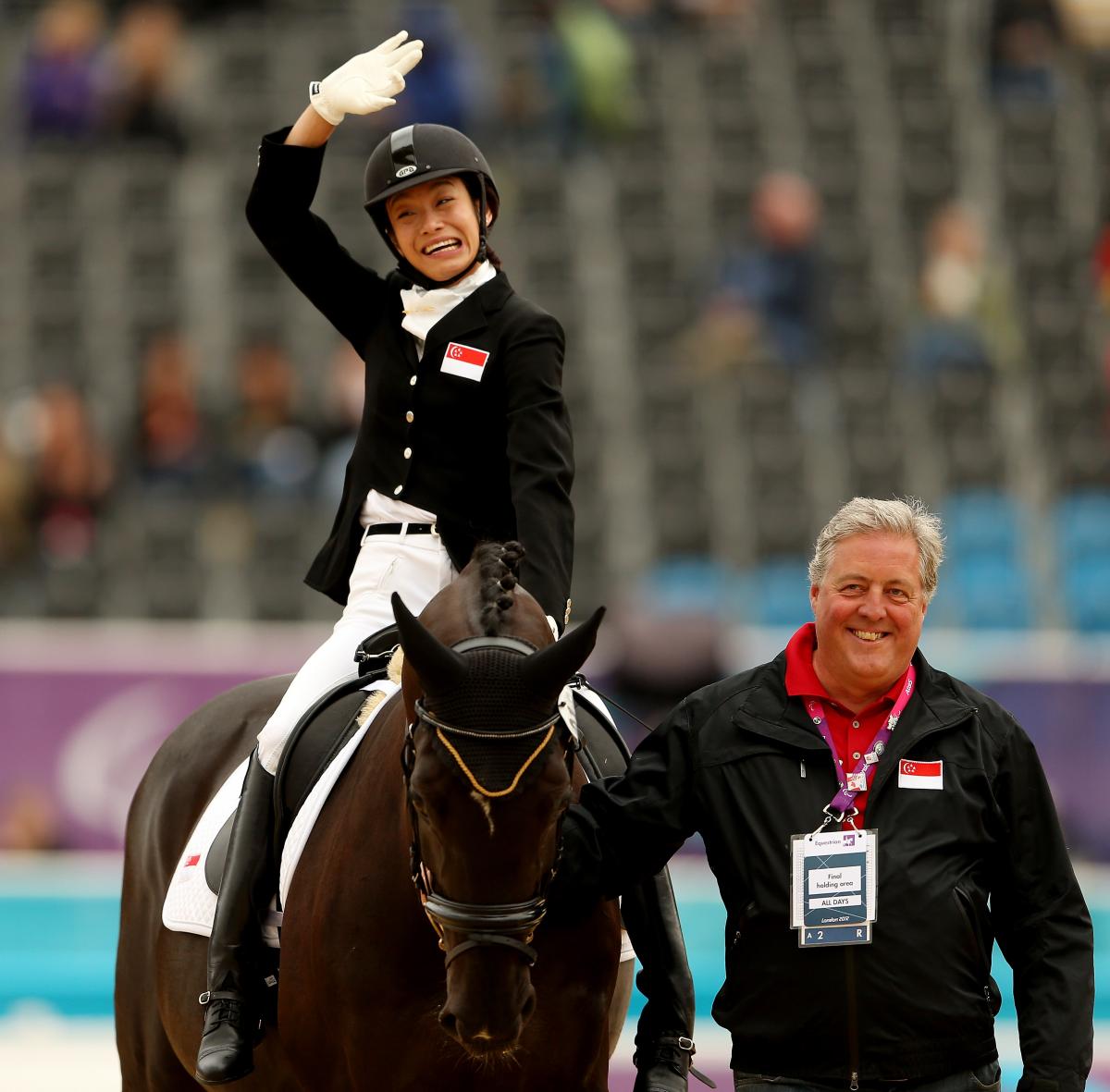Singapore’s Tan to help develop para-equestrian
Para-equestrian Laurentia Tan has joined the FEI’s Solidarity Ambassador programme to help others establish national structures to develop the sport. 14 May 2013
Singapore's Laurentia Tan won a silver and a bronze medal in equestrian at the London 2012 Paralympic Games, making her the most successful para-athlete from her country.
If you want to create opportunities and access to the wider community, it has to include people from various backgrounds, including those with disabilities.
Para-equestrian rider Laurentia Tan, Singapore’s most successful Paralympian, has recently been awarded a key role in the FEI’s Solidarity Ambassador programme – an initiative launched in 2011 and inspired by the Olympic Solidarity model.
The London 2012 silver and bronze medallist is now joining the likes of British Olympic dressage double-gold medallist Charlotte Dujardin and German Olympic eventing gold medallist Ingrid Klimke in the programme, which aims to provide opportunities for those competing or working in equestrian communities to establish their own national structures to develop their sport.
The IPC caught up with Tan this week to find out more about her new role, and what it’s like to be Singapore’s most successful Paralympian.
Paralympic.org: How does it feel to have such a high-profile role with the Solidarity Ambassador programme?
Laurentia Tan: I was asked by the FEI’s president, Her Royal Highness Princess Haya, just before Christmas 2012. Naturally, I’m delighted and honoured to be given such an important role.
It’s an exciting project which involves developing training opportunities and programmes for all areas of equestrian, including farriers, athletes, coaches and para-equestrian workshops. It also involves social projects with underprivileged children and working with numerous athletes and welfare schemes.
How important is to have Paralympic sport represented in the FEI Solidarity Ambassador programme?
It’s vital. If you want to create opportunities and access to the wider community, it has to include people from various backgrounds, including those with disabilities.
My horses give me the inspiration that anything is possible in life and, although there are times when things may not go well it is how you respond that really counts. Sometimes, opportunities may come in disguise so everyone should grab whatever opportunities come their way, Focus on the things you enjoy and make you happy because life is too short to do otherwise. I would love to help provide that opportunity for others to enjoy.
Do you think your role can help raise the profile of the Paralympic Movement and para-equestrian in Asia?
I especially hope to raise the profile of para-equestrian in Asia and beyond. I would love to see equestrian becoming more available and accessible there and throughout the rest of the world. Equestrian has such a rich heritage but it should also have a vision in which all equestrian communities worldwide have equal opportunities to take part and compete, and access to succeed.
Compared to the West, Asia is not on the same level, and a lot more needs to be done to improve equality, especially in terms of access, facilities and support. I am confident that this will happen in time with increased awareness.
What's it like to be Singapore's most successful Paralympian?
I have been lucky. I’ve had amazing support from family, friends and various professionals around me. It is with their understanding, encouragement and support that I have been able to achieve so many things.
But dressage is not just about the partnership between the horse and rider. As in any sport, it is also the people working with them and supporting them. This sport has taught me the importance of communication, trust and teamwork and I am really lucky to have such a great team and the support of everyone behind the team. Without that support network, I don’t know where I’d be today.




